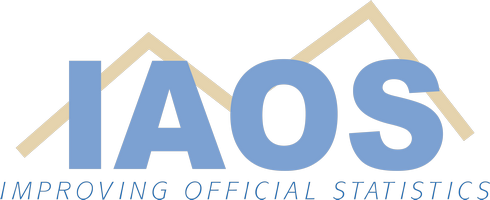| Status | Name | Country/affiliation | Title of the contribution | Brief summary |
|---|---|---|---|---|
| Chair | Małgorzata Markowska | Poland | ||
| Chair | Andrea Diniz da Silva | Brazil | ||
| Speaker | Mr. Ferenc Mújdricza | Hungary | A ‘New-Old’ Approach to NSI Advance Letter Designs at the Hungarian Central Statistical Office | Advance communication is key in nonresponse reduction as it affects response willingness. Recent literature assumes that mid-length, semi-formal letters, simple sentences, and multi-colour design enhances cooperation the most. Some even include behavioural ‘nudges’. These guidelines failed in the COVID-19 survey response crisis at the HCSO. A radical ‘emergency solution’ was developed: the US Census Bureau’s austere advance letters inspired a design employing official tone, authoritative argumentation, legal references, complicated sentences, stripped down graphics, and pressing nudges. Three approaches (semi-formal, abridged, official) were tested in an LFS split-sample experiment. The formal design yielded radically better cooperation, the abridged underperformed as expected. The experiment was repeated with similar results in the 2020 Census Rehearsal. In addition, priority mailing amplified the effect of the formal letter significantly. In conclusion, the semi-formal approach is not universally advantageous. Spectacular instant boosts notwithstanding, the authoritative style may well have controversial long-term effects that require further research. |
| Speaker | Ms. Ahlam AL-Rousan | Jordan | The role and contribution of statistical centers during the COVID-19 pandemic period by leveraging big data and non-traditional data to assess the effectiveness of the applied policies and support decision-makers | This project was implemented in 2020 in the Jordanian Department of Statistics. It aims to help advance the use and exploitation of technology and data to light the way for governments to respond to upcoming challenges including but not limited to COVID19. This project has enhanced the role of statistical centers by providing policy makers with indicators and recommendations based on new types of data and analytical methods, especially non-traditional data such as Facebook, Twitter, etc., which are collected and processed by big data and data science, while traditional data is difficult to obtain during the challenge time, to improve timely responses to be more targeted in the face of the many shocks to which countries are exposed. As a sustainable product of this project, an interactive platform has been developed for use by policy and decision makers in order to monitor the actual and direct impact on the ground. |
| Speaker | Ms. Aya Amro | Palestine | Assessing Data Quality of the Households Surveys Carried Out during COVID – 19 Pandemic Using Computer Assisted | In light of COVID – 19 pandemic, the Palestinian Central Bureau of Statistics (PCBS) considered using the Computer Assisted Telephone Interview (CATI) mode of data collection instead of Computer-assisted personal interviewing (CAPI) in conducting household surveys during the quarantine period. The paper studies the impact of this change in data collection on the quality of official statistical data based on the assessment results. The assessment process goes through three main strands for measuring data quality: Data assessment through accuracy dimension, data assessment through quality reports, data assessment through the Development of a Self-Assessment Program (DESAP). Also, it includes a comparison between these surveys and previous cycles, using quality measurements of Accuracy such as: the response, the coverage, and the bias of the sample. |
| Speaker | Mr. Zhasser Jarkinbayev | Kazakhstan | Data Governance: Experience of Kazakhstan | Data governance issues are becoming more and more important in Kazakhstan. Ministry of Digital development of the Republic of Kazakhstan (MDD) is implementing a number of government programs and initiatives related to the integration of different information systems and creation of the main national database. The new Concept for the Development of the ICT and the Digital Sphere in the Republic of Kazakhstan (Concept) determines the medium and long-term plans of the MDD in the area of data governance. In our opinion, successful implementation of the Concept requires the close cooperation between the MDD and the Bureau of National Statistics of Kazakhstan (BNS). At the moment, the joint vision of the possible ways of cooperation is under discussion. |



| Cookie | Duration | Description |
|---|---|---|
| cookielawinfo-checkbox-analytics | 11 months | This cookie is set by GDPR Cookie Consent plugin. The cookie is used to store the user consent for the cookies in the category "Analytics". |
| cookielawinfo-checkbox-functional | 11 months | The cookie is set by GDPR cookie consent to record the user consent for the cookies in the category "Functional". |
| cookielawinfo-checkbox-necessary | 11 months | This cookie is set by GDPR Cookie Consent plugin. The cookies is used to store the user consent for the cookies in the category "Necessary". |
| cookielawinfo-checkbox-others | 11 months | This cookie is set by GDPR Cookie Consent plugin. The cookie is used to store the user consent for the cookies in the category "Other. |
| cookielawinfo-checkbox-performance | 11 months | This cookie is set by GDPR Cookie Consent plugin. The cookie is used to store the user consent for the cookies in the category "Performance". |
| viewed_cookie_policy | 11 months | The cookie is set by the GDPR Cookie Consent plugin and is used to store whether or not user has consented to the use of cookies. It does not store any personal data. |